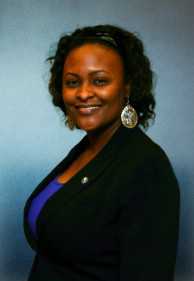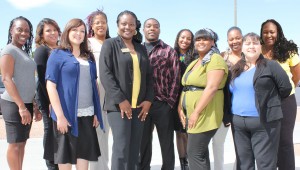Expanding, Redefining, & Strengthening Student Success at CSN
by Laura E. Latimer, Interim Dean of Student Affairs, Cheyenne Campus and
More than ever, both Student Affairs and Academic Affairs are vested in partnering to promote student success, graduation, and program completion at CSN. Both Divisions are collaborating to make sure:
- Existing student resources are effectively utilized and coordinated
- New resources fill gaps in existing services; and
- Students connect to resources that meet their individual needs
The reinforced collaboration between Student and Academic Affairs gathers momentum in efforts to meet the goals set forth by President Obama’s Complete College America agenda of increasing the number of young college graduates to 60% by the year 2020. This means that CSN will have to add 181 students to each graduating class between 2011 and 2020. In percentages, it signifies increasing CSN’s graduation rate by almost 19% in 9 years. Fortunately, CSN is off to a great start; not only did CSN meet its 2011 goal of graduating 2,217 students; it surpassed that year’s goal by 19%, graduating 2,271 students.
While student completion goals serve as the umbrella for student achievement at the institution, the following projects currently underway at CSN are integral to the success of CSN students:
– General Education Course Review and 60/120 Credit Limit for transferrable degrees
– A multimedia Online Orientation with built-in assessments and compliance-tracking features
– Assignment of Counselor/Advisor Liaisons to the Division of Academic Affairs to further an advising curriculum centered on excellence and exploration of degrees and occupations
– College Access Challenge Grants (CACG), one linking secondary students to postsecondary Career and Technical Education pathways and a second providing Accelerated Degree Completion pilots in both Business and Education
– Curricular Changes in Developmental Math and English coursework
– Don’t Wait Graduate for CSN stop-outs and drop-outs to reconnect with CSN and complete their degrees
– Non Traditional No More for local firefighters with previously earned college credits but have not earned a degree
– Project Graduate reaching out to students with 45 or more transferable credits to get them on track to graduate
– PeopleSoft granting students access to personal, academic and financial information, as well as educational plans to help them monitor their own progress
– Revised Admissions requirements promoting high school graduation and GED completion to ensure increase college preparedness
– Achieving the Dream (ATD) application from CSN to join dozens of other institutions in the country working with experts to assess, interpret and use the correct institutional data linked to direct interventions reducing time to completion while simultaneously increasing the number of disadvantaged students who graduate.
Finally, involvement in Achieving the Dream could help CSN accurately track and capture other measures of student successbesides the standard graduation rate. Why is it important to expand the current scope of what is traditionally considered student success? Because graduation rates for federal reporting-purposes are solely based on the achievement of full-time degree-seeking, first-time college attending students who graduate from two-year schools in three and a half years. This antiquated measure, developed in the early 1980’s for primarily residential schools, certainly does not do justice to community colleges. To put it in perspective, only 11% to 12% of CSN’s entering class calculates into the federal government’s standard graduation rate in any given reporting period. This very narrow definition of success has prompted CSN, along with hundreds of other community colleges in the nation, to consider the following measures as additional indicators of student success:
- Advancement from remedial to college level courses
- Completion of general education “gatekeeper” courses
- Course success with a grade of C or higher
- Persistence rates of students from term to term and form year to year
- Transfer rates to 4-year institutions
- Training for job advancement and gainful employment
Paramont to the success of these projects is continued collaboration between Student Affairs and Academic Affairs. In working togher, the CSN campus community creates multiple pathways to success and student achievement.

